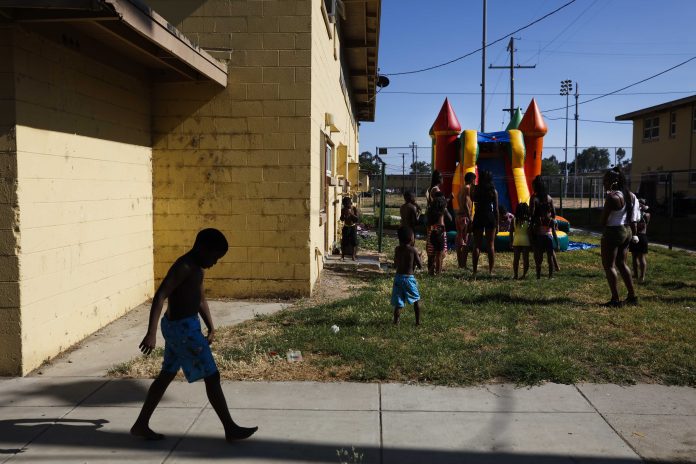
Associated Press
LOS ANGELES (AP) — California tenants who held Section 8 housing vouchers were refused rental contracts by more than 200 landlords, including major real estate firms, according to an undercover investigation that found widespread discrimination in the state.
The investigative nonprofit Housing Rights Initiative announced Tuesday that it has filed complaints with the California Civil Rights Department, alleging landlords violated a state law against denying leases to renters who pay with vouchers. It seeks penalties against 203 companies and individuals.
The nonprofit is also pushing for more state funding to adequately enforce the law, which Democratic Gov. Gavin Newsom signed in 2019.
“This historic filing serves as an opportunity for the Governor and his housing enforcement agency to enforce the very bill he signed into law and hold violators accountable,” the Housing Rights Initiative said in a statement.
Newsom’s office referred comment on the filing to the state Civil Rights Department. Rishi Khalsa, a department spokesperson, said the agency is “deeply committed to using the tools at its disposal to combat discrimination in housing.” The department has reached more than 200 settlements related to similar discrimination in recent years, Khalsa said.
“We always welcome additional support to strengthen enforcement of civil rights and we continue to work with a range of partners in those efforts,” he said in an email Tuesday.
The goal of the Section 8 program, named for a component of the federal Housing Act, is to keep rental properties affordable and prevent homelessness, which has reached crisis levels in California. Under the program, which has a long waiting list, tenants typically pay about 30% of their income on rent, with the voucher covering the rest.
Over the course of a year, undercover investigators posing as prospective tenants reached out via text messages to landlords, property managers and real estate agents to determine compliance with California’s fair housing laws. The investigation found voucher holders were explicitly discriminated against 44% of the time in San Francisco. Voucher denials took place in 53% of cases in Oakland, 58% in San Jose, and 70% in Los Angeles.
In one text message exchange, an agent with EXP Realty, a national brokerage firm, tells an investigator posing as a prospective tenant that utilities are included in the monthly rate for a rental unit. When informed that the tenant has a Section 8 voucher, the agent responds, “I don’t work with that program,” according to the investigation.
In another exchange, a broker with Sotheby’s International Realty replies to an investigator posing as a hopeful renter, “Oh sorry, owner not accepting Section 8.”
Representatives for EXP and Sotheby’s didn’t immediately respond Tuesday to emails seeking comment on the claims.
Kate Liggett, program director of Housing Rights Initiative, estimates the filing represents just a fraction of discrimination against Section 8 tenants in California.
“By exposing this widespread and harmful practice, we call on the State to provide agencies like the California Civil Rights Department with the resources they need to eradicate voucher discrimination once and for all,” Liggett said in a statement.



















